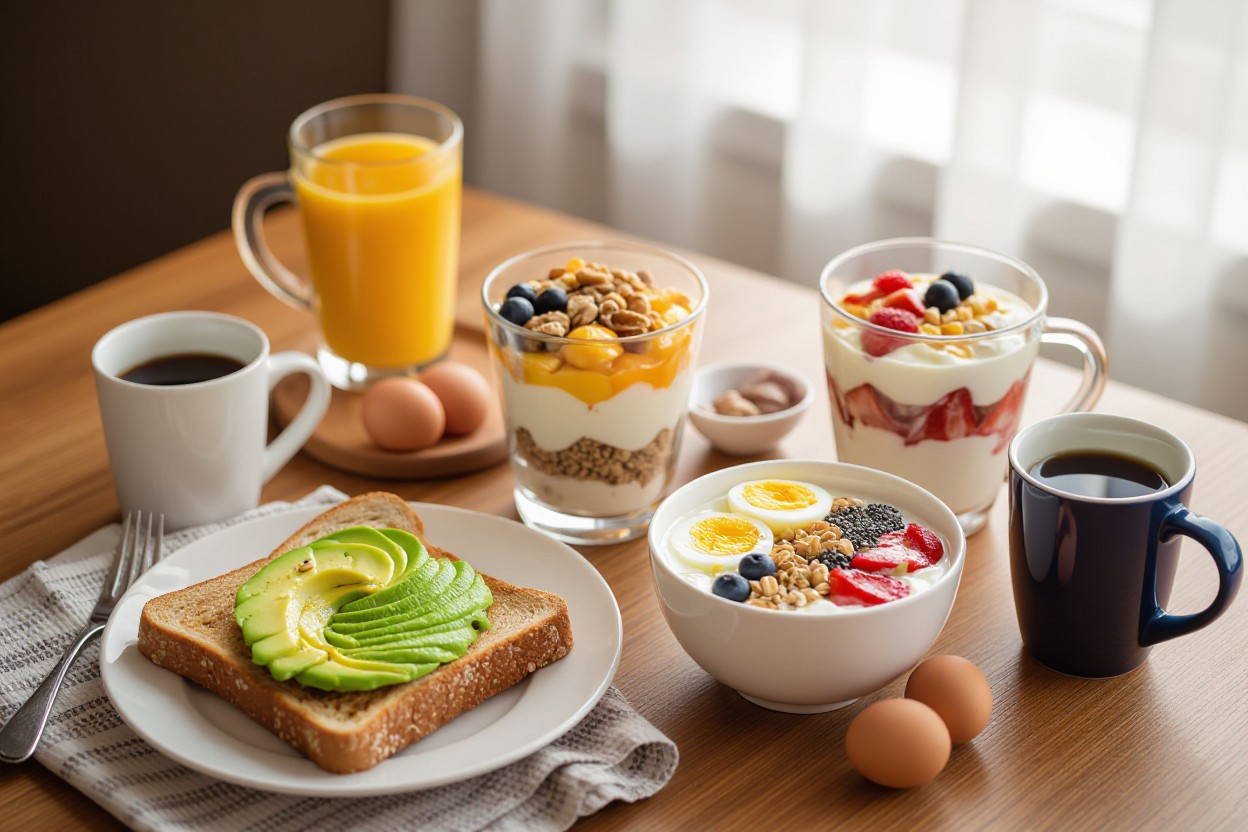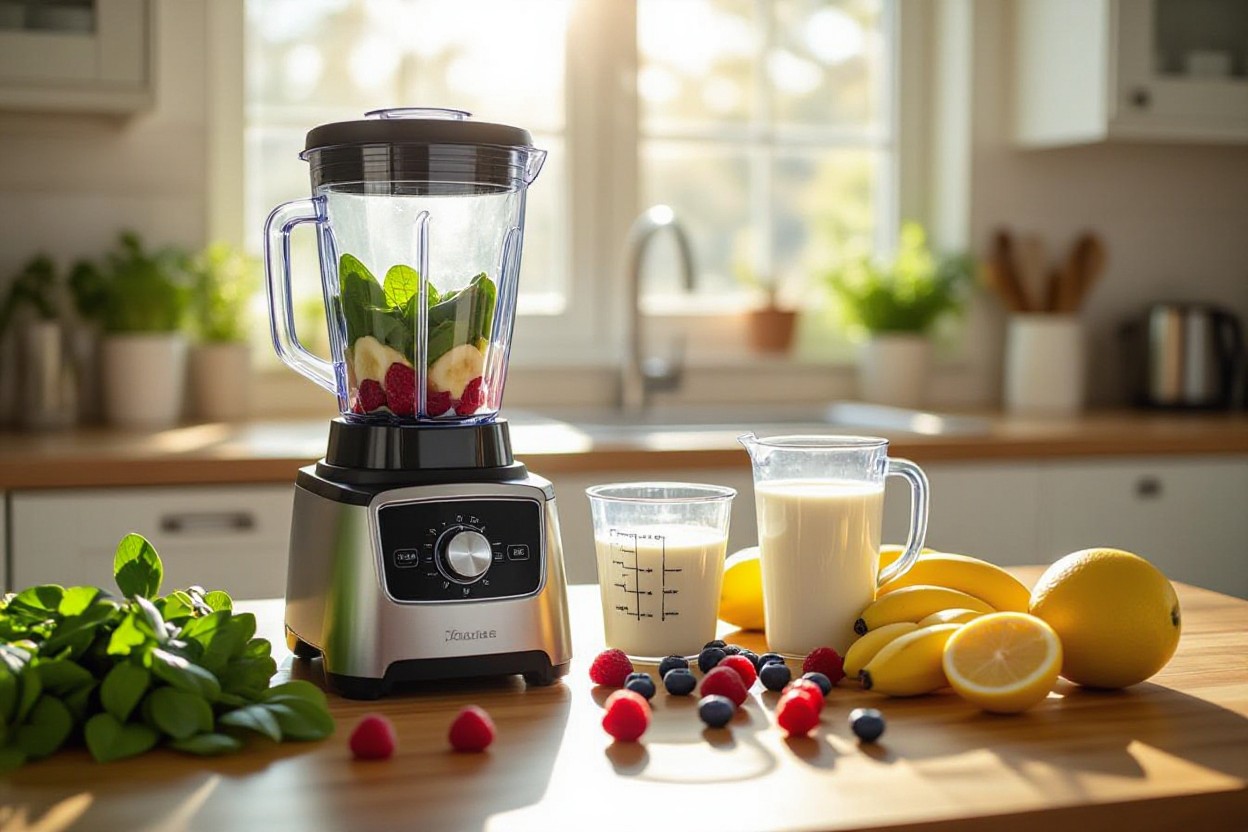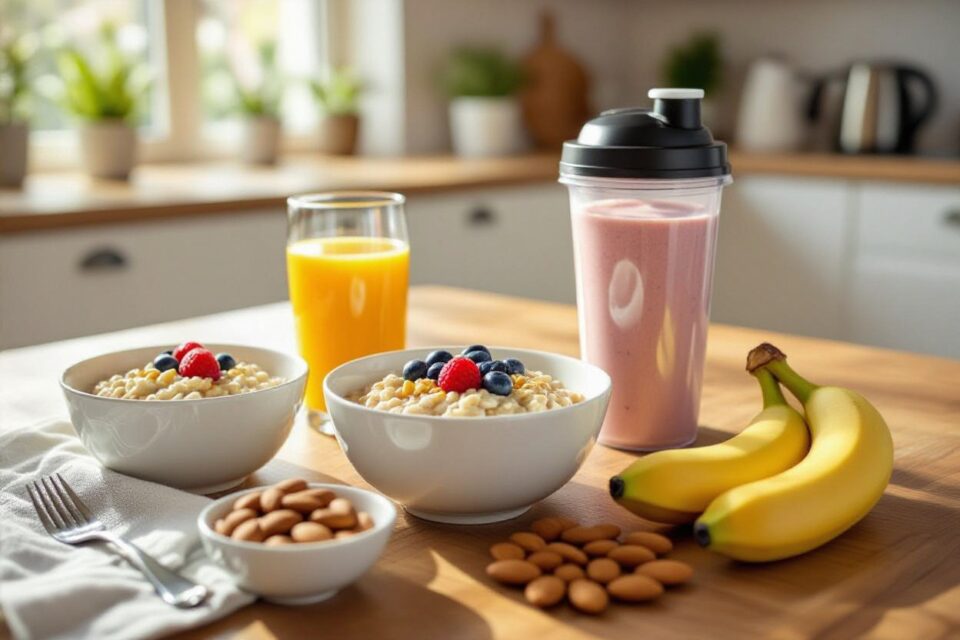Most people underestimate the impact of their morning meal on workout performance, yet what you eat before exercise can significantly influence your energy levels and endurance. In this guide, you’ll learn how to choose the best foods that fuel your body without causing discomfort or fatigue. Avoiding heavy, greasy meals is necessary to prevent sluggishness, while incorporating balanced carbohydrates and proteins will optimize your strength and stamina. By understanding the science behind pre-workout nutrition, you can enhance your morning routine and achieve better results with every session.

The Science of Morning Nutrition
Understanding how your body processes and utilizes fuel in the morning sets the foundation for effective nutrition strategies. After an overnight fast, your glycogen stores are partly depleted, which means the quality and timing of your pre-workout meal can strongly influence energy levels and endurance. Your hormonal profile in the early hours, including elevated cortisol and altered insulin sensitivity, affects how nutrients are metabolized. Tailoring your food choices to these physiological conditions lets you maximize energy availability, improve muscle function, and even enhance fat oxidation during your workout.
Metabolism Mechanics: How Pre-Workout Fuel Works
When you fuel up before a morning workout, your body first taps into glucose from your recently consumed carbohydrates, quickly converting it into usable energy. While fats provide a slower, sustained energy release, carbs are your fastest source to replenish muscle glycogen and maintain blood sugar levels. Protein plays a secondary role by supporting muscle repair but isn’t a primary energy source during exercise. Combining easily digestible carbs with moderate protein promotes stable blood sugar and prevents mid-session fatigue by ensuring your muscles have immediate and continued access to fuel.
Timing is Everything: When to Eat for Optimal Energy
Eating about 30 to 60 minutes before exercising often yields the best results for most people, as this window balances digestion time with nutrient availability. This period allows glucose from carbohydrates to enter your bloodstream, boosting your energy levels right when your body starts demanding fuel. Consuming meals too close to your workout risks discomfort, while waiting too long can leave your muscles underfueled. Experimentation helps you identify a personal sweet spot within this timeframe, keeping your energy smooth and sustained through the session.
If you push your pre-workout meal closer to the 60-minute mark, it allows your digestive system to process most of the carbohydrates into glucose, which then floods your muscles with readily available energy. For example, a banana or slice of toast with peanut butter eaten 45 minutes before training has been shown in studies to enhance endurance without causing gastric distress. In contrast, eating immediately beforehand often results in sluggishness due to ongoing digestion diverting blood flow from muscles. Your ideal timing depends on how your body responds to food and exercise intensity, so adjusting meal size and nutrient composition in this critical window helps optimize performance and prevent energy dips.
Ideal Food Choices for a Morning Boost
The right morning meal fuels your workout without weighing you down. Opt for foods that digest easily and provide quick energy, blending carbohydrates, lean proteins, and healthy fats. Balancing these macronutrients helps sustain your energy levels and supports muscle repair, ensuring you get the most from each session.
Carbohydrates: The Energy Powerhouses
Your body taps into carbohydrates as its primary energy source during workouts. Simple options like bananas, oatmeal, or whole-grain toast break down quickly into glucose, providing rapid fuel for your muscles. Complex carbs with fiber offer longer-lasting energy that prevents mid-exercise fatigue. Targeting around 30-60 grams of carbs before activity supports steady performance.
Proteins: Building Blocks for Endurance
Incorporating lean protein sources such as Greek yogurt, scrambled egg whites, or a small scoop of whey protein can enhance your endurance. Proteins help repair any micro-tears in muscles and reduce exercise-induced fatigue. Aim for 10-20 grams pre-workout to optimize recovery and sustain muscle function during prolonged efforts.
Adding protein not only primes your muscles for growth but also moderates blood sugar swings by slowing carb absorption. Studies show that even modest amounts of protein pre-exercise can improve strength output and reduce soreness afterwards, letting you hit your next workout harder.
Fats: The Secret Ingredient for Sustained Energy
Small portions of healthy fats like avocado slices, a tablespoon of almond butter, or a few nuts provide concentrated energy that releases slowly. Fat supports endurance by acting as a secondary fuel source when glycogen runs low, delaying fatigue during extended workouts. Keep fats light—around 5-10 grams—to avoid digestive discomfort.
Fats engage mitochondrial function within muscle cells, crucial for prolonged energy production. Incorporating monounsaturated and polyunsaturated fats from sources such as olive oil and flaxseeds can improve metabolic efficiency and even reduce inflammation, enhancing your overall workout capacity and recovery speed.
Meal Timing and Portion Sizes
Getting your meal timing and portion sizes right can make a significant difference in how you feel during your morning workout. Eating too close to exercise can cause discomfort or sluggishness, while waiting too long might leave you running on empty. Your body’s response to pre-workout food depends on both when you eat and how much. Balancing these two factors ensures you have the energy you need without feeling weighed down or bloated.
Pre-Workout Timing: The Sweet Spot for Performance
Eating about 30 to 60 minutes before your workout hits the sweet spot for most people. This window provides enough time for digestion and nutrient absorption, so glucose and amino acids are readily available for your muscles. If you eat much earlier, such as 2-3 hours before exercising, opt for a more substantial meal. Close to your workout, choose easily digestible foods to avoid gastrointestinal discomfort that might slow you down.
Portion Control: Finding the Right Balance
Portions should be modest to prevent any sluggishness during your workout but sufficient enough to fuel your muscles. Aim for a snack or mini-meal that delivers roughly 150-300 calories, depending on your size and workout intensity. Overeating can lead to bloating and lethargy, while eating too little might leave you fatigued and less focused.
To fine-tune your portion sizes, consider your individual metabolic rate and the workout’s duration. For example, a 150-pound person engaging in a light 30-minute jog might only need a banana and a small handful of almonds (~200 calories), whereas a 200-pound individual doing an intense 60-minute HIIT session could benefit from a larger, balanced snack with carbohydrates and some protein (around 300 calories). Keeping track of how different portion sizes impact your workout performance can help you dial in the perfect amount for your body’s fuel needs.

Common Pitfalls and Myths
Several misconceptions about pre-workout eating can actually hinder your performance or lead to discomfort. From fasting beliefs to timing errors, these myths often cause you to skip necessary fuel or eat at impractical times. Avoiding these pitfalls will help you optimize energy delivery and recovery alike, ensuring your morning workout feels less like a struggle and more like a session of focused power.
Debunking the Myth of the “Empty Stomach” Workout
Performing a morning workout on an empty stomach is often praised for boosting fat burning, but studies show mixed results regarding performance and muscle preservation. Without some fuel, you risk reduced energy levels, lower exercise intensity, and quicker fatigue. Although fasted cardio may burn a slightly higher proportion of fat, the total calorie burn and workout quality typically suffer. A light, easily digestible snack can provide that necessary energy boost without causing discomfort.
Misconceptions About Eating Too Early
Many assume eating too early before a workout leaves you feeling heavy or sluggish, but timing largely depends on the food type and your digestion speed. Consuming a balanced snack 30 to 60 minutes prior often enhances performance rather than hinders it. The key lies in choosing easily digestible carbohydrates and moderate protein, which provide steady fuel while minimizing gastric distress during exercise.
Diving deeper, the idea of “eating too early” typically stems from fears of stomach discomfort or bloating during exercise. However, research indicates that if you consume low-fat, low-fiber snacks like a banana with Greek yogurt or a small bowl of oatmeal an hour before working out, your body has enough time to digest and convert these foods into usable energy. On the flip side, waiting too long between eating and exercise can lead to low blood sugar and sluggishness. Tailoring your pre-workout snack timing based on personal tolerance and the food’s composition helps avoid these issues and supports sustained energy release.

Personalizing Your Pre-Workout Routine
Your body’s needs vary just as much as your workout goals. Customizing what you eat before your morning sessions means tuning into your metabolism, energy levels, and even workout style. Some might thrive on a small banana and peanut butter, while others require a blend of carbs and protein to push through intense sessions. Experimentation helps you identify how quickly foods digest and which combinations provide sustained energy without discomfort. Tracking your performance and recovery can guide you toward a pre-workout meal that enhances endurance and prevents fatigue.
Listening to Your Body: Signs You Need More Fuel
Feeling lightheaded, dizzy, or unusually fatigued during your morning workout signals that your fuel stores might be inadequate. Low blood sugar can lead to decreased concentration and muscle weakness, which interfere with exercise output. If you notice your energy dropping faster than usual or cramping early on, it’s a sign to incorporate additional carbohydrates or small amounts of easily digested protein before you train. Paying attention to these cues ensures you avoid under-fueling that could compromise performance or lead to injury.
Adapting Your Diet Based on Workout Intensity
Adjusting your pre-workout nutrition according to how hard and long you’ll exercise supports optimal energy availability. For example, brief low-intensity workouts might only necessitate a small fruit or a few crackers, whereas high-intensity or endurance sessions benefit from a more substantial mix of complex carbs and protein about 30 to 60 minutes prior. This tailored approach maximizes glycogen stores and minimizes muscle breakdown, allowing you to push harder and recover faster.
When workouts involve prolonged bursts at 75-85% of your max heart rate or extend beyond 60 minutes, your glycogen consumption rises sharply. Integrating 30-50 grams of carbohydrates combined with 10-15 grams of protein pre-exercise can improve muscle endurance and reduce soreness post-workout. For shorter, moderate effort sessions, sticking to 15-25 grams of quick-digesting carbs like a ripe banana or a slice of toast with honey can maintain steady energy without causing discomfort or sluggishness.
Conclusion
On the whole, understanding what to eat before a morning workout empowers you to maximize your energy and performance. By choosing balanced foods that provide a mix of carbohydrates, protein, and hydration, you prepare your body to effectively tackle exercise. Tailoring your pre-workout nutrition to your individual needs helps you feel energized and supports your fitness goals. Establishing this mindful eating habit can greatly enhance your morning exercise routine and overall well-being.
Q: What types of foods are best to eat before a morning workout?
A: Prioritize easily digestible carbohydrates such as a banana, oatmeal, or toast with honey. These provide quick energy without causing discomfort during exercise. Small amounts of protein, like yogurt or a boiled egg, can also support muscle function.
Q: How long before a morning workout should I eat?
A: Aim to eat a small meal or snack about 30 to 60 minutes before you start exercising. This timing allows for digestion and helps maintain energy levels throughout your workout. If you’re eating a larger meal, try to finish it at least 2-3 hours beforehand.
Q: Should I avoid fats and fiber before morning exercise?
A: Yes, it is generally best to limit fats and high-fiber foods before a morning workout because they take longer to digest and may cause gastrointestinal discomfort or sluggishness during exercise.
Q: What if I don’t feel hungry early in the morning—should I still eat before working out?
A: If you don’t have much of an appetite, start with a small, simple snack like a piece of fruit or a small smoothie to provide some energy. Alternatively, some light exercisers might find exercising on an empty stomach suitable, but it depends on individual tolerance and workout intensity.
Q: Can drinking water before and during a morning workout affect my performance?
A: Staying hydrated is important, so drink water before and during your workout. Proper hydration supports muscle function and helps prevent fatigue. Avoid sugary or caffeinated drinks immediately before exercise as they may cause dehydration or digestive upset.
Q: Are there specific foods to avoid before a morning workout?
A: It’s best to avoid heavy, greasy, or spicy foods because they can cause stomach upset. Also, limit processed sugars or large portions of protein, as they may slow digestion and reduce comfort during your workout.
Q: How can I customize my pre-workout meal based on my exercise goals?
A: For endurance activities like running or cycling, focus on carbohydrate-rich foods for sustained energy. If strength training is the focus, include a balance of carbohydrates and protein to support muscle repair and growth. Adjust portion size and food choices depending on workout duration and intensity.
